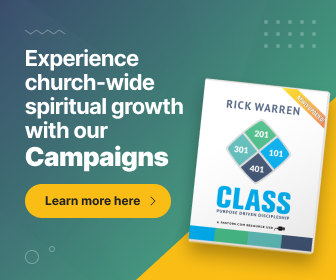Celebrate Recovery
How Celebrate Recovery Is Impacting My Closest Relationships

By Bob Newby, Regional Director for the West
I walked through the doors of Celebrate Recovery 14 years ago on the recommendation of a family counselor. She suggested that I might be struggling with some codependency. I wasn’t sure why she thought that. I was fine. The fact that I was unhappy and anxious was not my fault. It was everyone else who was messed up! I’m a pastor! I knew my marriage wasn’t perfect, but we hadn’t cheated on each other. We were deeply committed to staying together. Sure, we had conflict, but I thought that if my wife would just respect me, our marriage would be so much better.
I was angry with our teenage son for using marijuana. I remember thinking, I am not the one who needs help in this family. If my wife would change, if my son would get his act together, things would be fine. My focus had been on pointing out how they needed to change. I tried quite diligently to get them to change but to no avail. I would use my loud voice. I felt shame when I did that. I would offer suggestions for what they should do. That went nowhere, which infuriated me. There was an underlying tension in our home. At times it felt like we were walking on eggshells. I truly believed that my happiness was in the hands of those around me. If only they would change!
During our 39 years of marriage, we had explored marriage counseling on and off in hopes to finding some help. One time we went, we had one of the most explosive arguments in the parking lot after the appointment. I thought, “What a waste of money!” The help we were pursuing was not effective for our challenges. In hindsight, I now understand that I wasn’t ready for counseling, because I primarily wanted the counselor to point out to Vicki how she needed to change.
At my first Celebrate Recovery experience, about halfway through the big meeting, I looked around and thought to myself, I know these people. They’re some of my favorite people, because they’re honest and many of them are very fun. While I wasn’t sure yet about why I was there, I was comfortable hanging with this crowd. When the speaker shared his testimony, I noticed how he talked about himself and didn’t blame others for his behavior. I could see how the hurt he felt led to poor choices. I heard clearly that he was experiencing more peace and joy as a result of working the 12 steps and eight principles of Celebrate Recovery. I felt hopeful after the first meeting. If the speaker found some help, perhaps I could, too! I remember them saying, “Just keep coming back.”
After a few weeks of attending Celebrate Recovery, I started to go to Open Share groups. I really appreciated the guidelines. The last thing I wanted was for someone else to tell me what I needed to do. There’s more than a little irony here.
After a few months, I was invited to join a Step Study. Over a period of about five months, I noticed my perspective had shifted from hoping others would change to believing that Jesus could help me change. I began to embrace the concept that I am powerless to change others, but with God’s help, he could change me—and that would be enough.
During my 4th Step inventory, I not only acknowledged how others had hurt me, but also how I had hurt others. I deeply forgave those who had hurt me. It’s awesome living without bitterness toward others. I made amends to my son, to my wife, and to others I had hurt, and I desired to stop trying to change them.
Having a sponsor help me work the eight principles has been a game changer. I call my sponsor at least weekly to check in. He has been there to encourage, challenge, and cheer me on in my recovery. He provides a balanced perspective, which I am able to listen to.
Since being in recovery, my relationship with God is closer and sweeter. I’m trusting him for everything. I’m praying more. I ask for his help throughout my day. I’m choosing to trust God even when things look out of control. Big things or little things, I’m leaning on him for them all. I no longer have to have my way for me to be okay.
My relationship with myself is adventurous and kinder. I’m getting to know myself better. Recovery is helping me connect with my feelings. I begin each day reading the Bible, praying, and journaling. Journaling helps me discover my feelings. When I identify my feelings, I’m able to better manage them. I’m embracing my identity in Christ. I am deeply loved. God has chosen me and adopted me into his family. I am a wretched sinner saved by grace. I am fearfully and wonderfully made.
My relationship with my wife is gentler, and we are growing in intimacy. Our relationship is turning into a beautiful partnership of deep love and respect. My primary focus is no longer on changing her. My focus is to love her where she is. We no longer walk on eggshells. We have embraced the concepts shared not only in Celebrate Recovery, but also in the book How We Love by Milan and Kay Yerkovich. This has been a very rich and healing journey. Vicki and I both acknowledge that because we have worked the eight principles of Celebrate Recovery, our relationship is the best it has ever been.
If you’re struggling in your closest relationships, consider giving Celebrate Recovery a try. If you’ve tried marriage counseling and it was not effective, perhaps like me, you simply were not ready for that yet. Through Celebrate Recovery, you can learn to make positive changes cleaning up your side of the street and trusting God for everything. My encouragement to you is the same given to me: “Keep coming back!”
“You are living a brand new kind of life that is continually learning more and more of what is right, and trying constantly to be more and more like Christ who created this new life within you” (Colossians 3:10 TLB).















